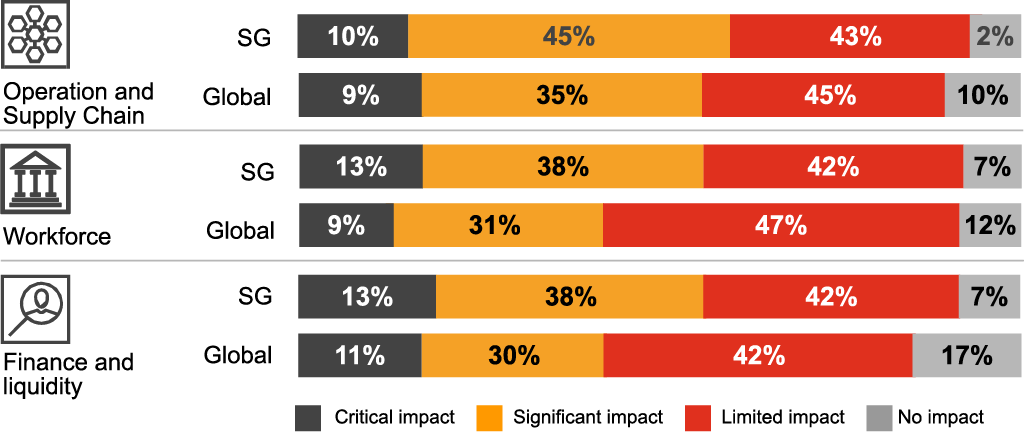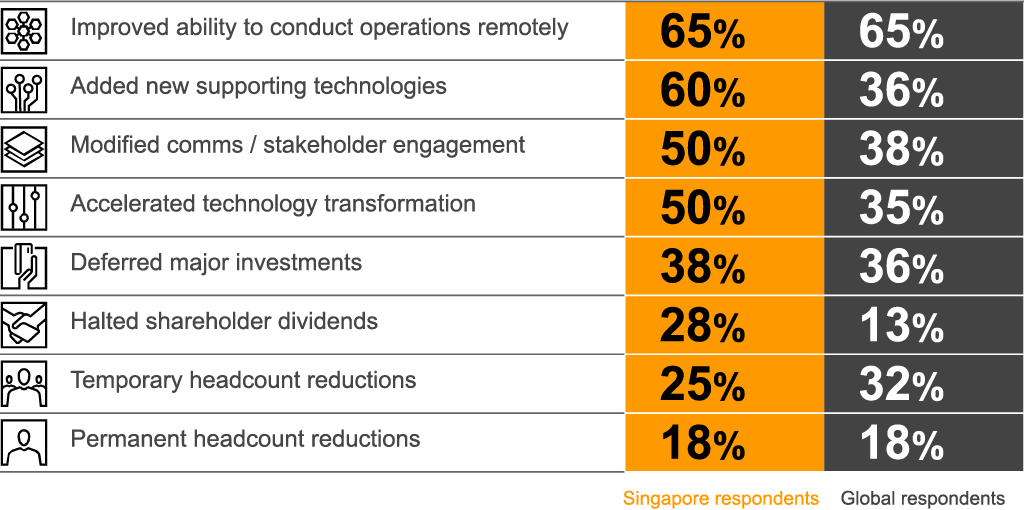
Global Crisis Survey 2021 Singapore
PwC’s Global Crisis Survey 2021 unearths the worldwide business community’s response to the unprecedented social, economic and geopolitical disruptions caused by the pandemic, while also shining the spotlight on what they’ve learned and how they’re preparing for what’s next.
The Singapore report captures the responses of the local businesses, their actions through the pandemic and what they are doing to emerge stronger in the new world.
Impact on Singapore organisations
Our report reveals that 32% of Singapore organisations had operations that were significantly impacted by COVID-19. According to local business leaders, operation and supply chain, finance and liquidity and workforce were the three most impacted areas of operations.
Top 3 most impacted areas

Top actions by businesses through the pandemic

Responses by Singapore organisations
When COVID-19 started impacting operations, more than half of Singapore organisations sought external assistance from government contacts. More than half of Singapore businesses also responded by:
- Enabling remote operations
- Adopting new technologies
- Modified comms/stakeholder engagement
- Accelerated technology transformation
Four key lessons learned
Three takeaways
Business leaders recognise that a foundation of resilience can make the difference between faltering or flourishing — during a disruption or in good times. As the post-pandemic period begins to take shape in the coming months, organisations have an opportunity to reimagine opportunities for the future.
"The challenge of crisis management in today’s complex world is in recognising the inevitability and unpredictability of disruptions and prioritising investments in cementing a strong foundation of resilience to weather any future disruptions."







